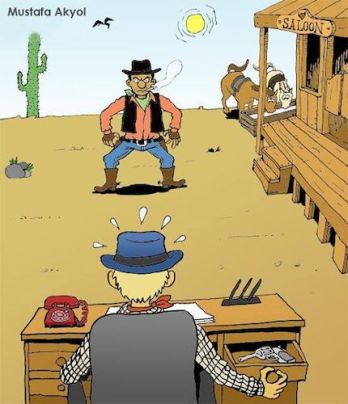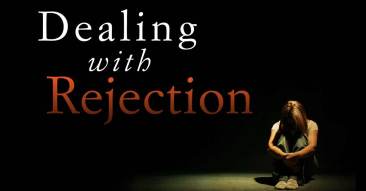 Are you living in an echo chamber? Would you even know if you were?
Are you living in an echo chamber? Would you even know if you were?
Sadly, my observations would indicate, no. You wouldn’t know. You might believe you’re “informed,” but you might not be.
Wait a minute. How can I say that?! Oh, the hubris of it!
Actually, no–not really. Hear me out.
I teach critical thinking (among other things). I have observed, both at the high school and college levels (I teach both), a trend of picking a “side” and becoming entrenched. There is no struggle. There is no debate. There is no true belief. There is a parroting of what they are told by the “authorities” of their chosen side.
But this is not isolated to Gen Z. A quick perusal of any social media site will show you it’s rampant in all generations.
These individuals often think they are informed, but I would disagree–doesn’t matter the belief or they “side” they chose. Doesn’t matter if they believe what I believe or not. I would still say they are uniformed.
Why?
Because they live in an echo chamber, and an echo chamber opposes critical thinking.
Most people don’t know what an echo chamber is.
An echo chamber by definition is: “an environment in which a person encounters only beliefs or opinions that coincide with their own, so that their existing views are reinforced and alternative ideas are not considered.”
Most Americans today are very well “informed” on their point of view. They haven’t however, evaluated the opposing view critically. They can parrot back the views of their “side,” but I question that many can honestly tell you what they believe.
How can I say that?
Belief takes critical thinking. It takes personal work.
Let’s look at that word “critically.” What does it mean to think critically.
Study.com puts it this way: “Critical thinking means making reasoned judgments that are logical and well-thought out. It is a way of thinking in which you don’t simply accept all arguments and conclusions you are exposed to but rather have an attitude involving questioning such arguments and conclusions.”
In order to know what you believe you need to think about it. And that requires the questioning of the status quo and varying view points.
You cannot come to an informed decision if you are only hearing one view point. It is the opposite of critical thinking.
True belief requires toil. It requires looking at all sides of an issue.
Wait–that’s not quite right. Not just looking at it–analyzing it. And to analyze requires that we look at it with an open mind.
 Too often I see people who wander to the other side of the tracks with guns blazing, ready to insult and sling mud and shoot down the opposition. We call them trolls. They’re not looking to understand, they’re look to stir up trouble, or, at best, to tell them why they’re wrong instead of listening honestly to what they might have right.
Too often I see people who wander to the other side of the tracks with guns blazing, ready to insult and sling mud and shoot down the opposition. We call them trolls. They’re not looking to understand, they’re look to stir up trouble, or, at best, to tell them why they’re wrong instead of listening honestly to what they might have right.
This too is a lack of critical thinking. It is a lack of objectivity.
One of the biggest criticisms I’ve heard in the arena of politics (and I have firsthand experienced) is the deterioration of debate. Debate requires an open mind. Something all too often lacking in modern politics. Don’t tell me why I’m wrong–convince me why you’re right. This is the basis for intelligent thinking.
 If we’re honest, it’s rampant on social media. It is an epidemic far more terrifying than any I have observed because it takes thinking human beings and turns them in to sheep.
If we’re honest, it’s rampant on social media. It is an epidemic far more terrifying than any I have observed because it takes thinking human beings and turns them in to sheep.
And we all know that analogy. Sheep will follow their leader (aka authority) right off a cliff.
Don’t be a sheep. Do the work. Seek dissenting opinions and consider what they have to say honestly. Analyze the data, search your soul, and then draw your own conclusion.
I don’t care if you agree with my opinion or not. If you have done the work, I welcome the conversation. Maybe you have something to teach me. Maybe I have something to teach you.
And THAT I can respect.


 disappearing act.
disappearing act. We think strength is having it all together. We think it’s facing adversity without flinching. We think it’s the opposite of weakness.
We think strength is having it all together. We think it’s facing adversity without flinching. We think it’s the opposite of weakness. I do the opposite. I face my weakness. I embrace it. I face the loss, the betrayal, the grief, the unfairness. With tears flowing down my cheeks and a heart full of agony, I face it.
I do the opposite. I face my weakness. I embrace it. I face the loss, the betrayal, the grief, the unfairness. With tears flowing down my cheeks and a heart full of agony, I face it. And my mouth stops trembling. And my tears dry up. Finally I can meet the lies in the eye and know that they are lies.
And my mouth stops trembling. And my tears dry up. Finally I can meet the lies in the eye and know that they are lies. I found myself in a funk I couldn’t seem to climb out of.
I found myself in a funk I couldn’t seem to climb out of. Rejection, from a biological standpoint, is one of the absolute worst things we can experience. Worse than physical pain. In fact, according to
Rejection, from a biological standpoint, is one of the absolute worst things we can experience. Worse than physical pain. In fact, according to 
 At the time I took it as a parenting win. I reminded myself I needed to be careful to live up to this responsibility, but it was mostly a fleeting thought. A cursory nod.
At the time I took it as a parenting win. I reminded myself I needed to be careful to live up to this responsibility, but it was mostly a fleeting thought. A cursory nod. All of us, each and every one of us, are the voice in someone’s head–most likely several someones. Our voice can build them up.
All of us, each and every one of us, are the voice in someone’s head–most likely several someones. Our voice can build them up. You are beautifully and wonderfully made.
You are beautifully and wonderfully made.
 This is something I’m not very good at doing. When things aren’t going the way I want them to, my instinct is to take the wheel, make a plan, and conquer it head on with my own strength and by my own power.
This is something I’m not very good at doing. When things aren’t going the way I want them to, my instinct is to take the wheel, make a plan, and conquer it head on with my own strength and by my own power. But God is telling me to trust Him and to let go. To let Him row my boat.
But God is telling me to trust Him and to let go. To let Him row my boat.
 The best is not comfortable. It’s not necessarily happiness–though there will be happy times. It’s not safe.
The best is not comfortable. It’s not necessarily happiness–though there will be happy times. It’s not safe. Our relationship with God is much the same. It’s not that God wants us to hurt–it’s that He wants us to grow.
Our relationship with God is much the same. It’s not that God wants us to hurt–it’s that He wants us to grow. A few months ago, God called me to step out of comfortability and to follow Him. At first the following wasn’t so hard, because I do trust Him. But He led me to what appeared to be a dead end. He led me to the bank of the Red Sea. Pharaoh’s army stood before me, the Sea behind me. He led me to a place that appeared impossible.
A few months ago, God called me to step out of comfortability and to follow Him. At first the following wasn’t so hard, because I do trust Him. But He led me to what appeared to be a dead end. He led me to the bank of the Red Sea. Pharaoh’s army stood before me, the Sea behind me. He led me to a place that appeared impossible.



 He slept–but he wasn’t dead.
He slept–but he wasn’t dead.